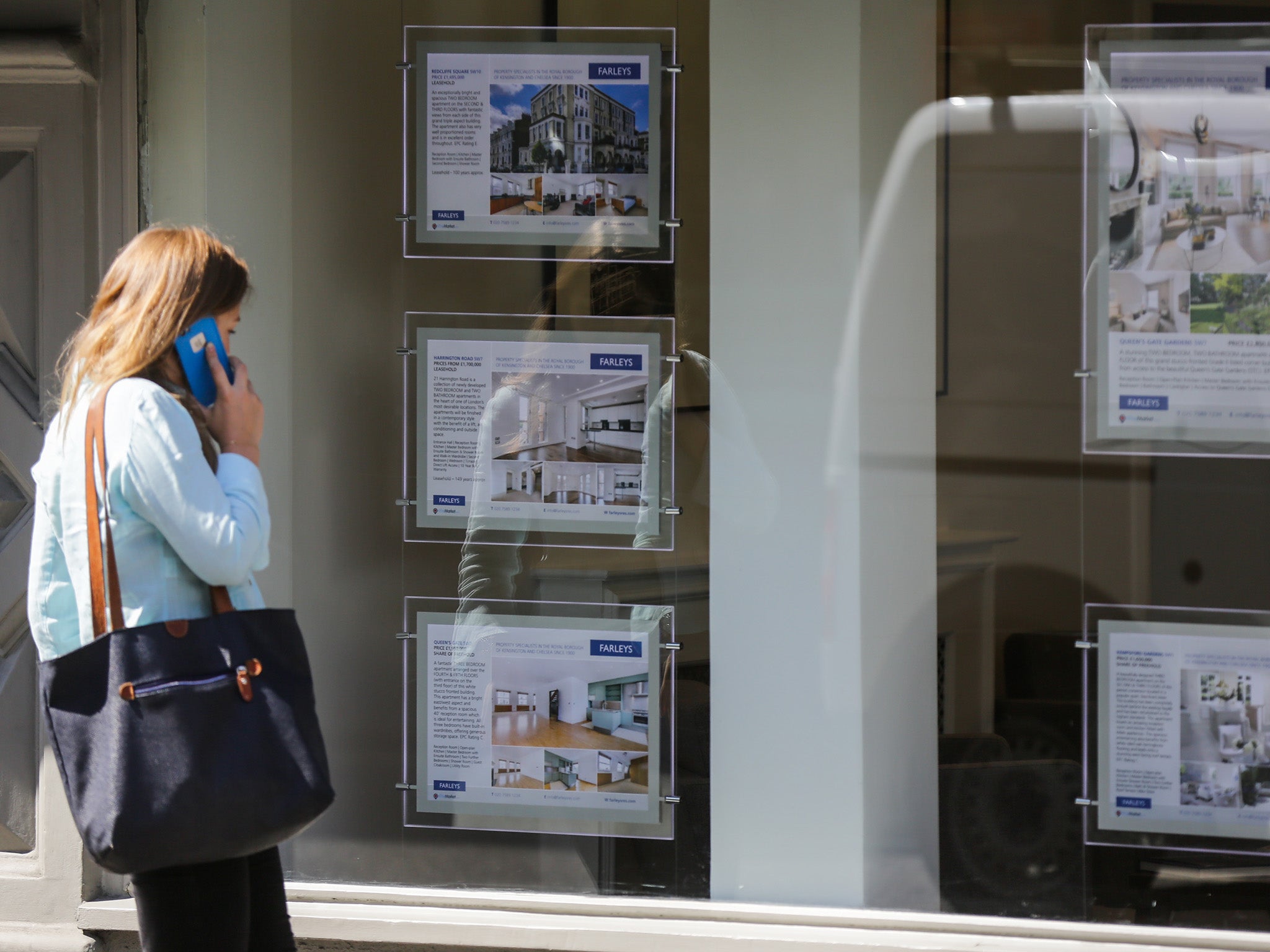Homeowners and new buyers face sky-high fees as lenders bid to counter low mortgage rates
Lenders inflict arrangement fees of up to £4,000 as record low interest rates continue

Your support helps us to tell the story
From reproductive rights to climate change to Big Tech, The Independent is on the ground when the story is developing. Whether it's investigating the financials of Elon Musk's pro-Trump PAC or producing our latest documentary, 'The A Word', which shines a light on the American women fighting for reproductive rights, we know how important it is to parse out the facts from the messaging.
At such a critical moment in US history, we need reporters on the ground. Your donation allows us to keep sending journalists to speak to both sides of the story.
The Independent is trusted by Americans across the entire political spectrum. And unlike many other quality news outlets, we choose not to lock Americans out of our reporting and analysis with paywalls. We believe quality journalism should be available to everyone, paid for by those who can afford it.
Your support makes all the difference.Homeowners and new buyers are being warned of soaring mortgage fees with precious little to justify them as an interest rate price war rumbles on.
Competition in the mortgage market has reached full throttle, with borrowers seeing some of the lowest rates on record, especially when it comes to fixed rate home loans – the deals buyers are being urged to move to before the Bank of England base rate starts to rise and borrowing costs increase.
But lenders looking for new ways to boost their bottom line are countering the race to the bottom for interest rates with higher fees elsewhere.
The latest research shows that fees on fixed rate mortgages are now at their highest levels since August 2013, with average arrangement costs now exceeding the £1,000 mark.
“Some of the lowest deals on the market have fees of around £2,000, and some borrowers are being asked for even more,” warns Charlotte Nelson, finance specialist at moneyfacts.co.uk.
“The largest fee on a fixed rate mortgage is sitting just shy of £4,000 on a deal for professionals only. As fees vary wildly even within just one provider’s mortgage range, it leaves many borrowers questioning what they are for and what they would gain from paying extra in fees.”
Deals with larger fees often allow you to add the fee to the mortgage advance, however, this increases the amount borrowed, pushing up monthly repayments.
“It seems wasteful when there are fee-free products out there,” Nelson adds. “That said, a low rate with a high fee does tend to favour those borrowers purchasing properties at the higher end of the housing market, so the advantages of a fee-paying versus a fee-free product will depend on personal circumstances.
These larger fees mean that the new lower rate mortgage deals on the market might not be as cost-effective as their headline-grabbing rates might suggest.
For example, opting for the lowest two-year fixed rate mortgage at 60 per cent loan-to-value with no fee (currently Skipton Building Society’s 1.48 per cent deal) will see borrowers £1,088.61 better off in the first year compared with the lowest overall rate, which comes with an above average fee of £1,495.
The extra saved by opting for a deal with no fee could be better used to overpay the mortgage, which could help borrowers become mortgage-free quicker.
“Borrowers must remember that there is more to a mortgage than the rate of interest. The total cost – rate plus all fees – must be calculated so that you can compare mortgages on a like-for-like basis,” says Mark Harris, chief executive of mortgage broker SPF Private Clients.
'Generally speaking, lenders offering rock-bottom rates may charge a higher fee in order to make the pricing commercially viable. However, that doesn't mean you should always avoid high fees because you may get a very cheap rate.
“Whether it is worth paying the high fee in order to get the cheap rate or not will depend on the size of your mortgage. The bigger the mortgage, the less important the fee and the more important the rate.
“You can always add the fee onto the mortgage if you don't have the cash to pay upfront but you will pay more in the long run because you will be charged interest on top.”
Meanwhile, the Council of Mortgage Lenders has found that the number of homes sold every year has stalled.
Before the recession, there were about 1.6 million home sales a year in the UK, which plummeted to 860,000 in 2009 but has since recovered to around 1.2 million.
The shortfall, the association believes, is down to an army of "missing movers" – mortgaged home-owners who are failing to move up the housing ladder.
While this is partly because mortgaged owners now tend to be older and less likely to move than younger homeowners, around 140,000 people aren’t moving predominantly because they don’t have sufficient equity in their homes to do so.
For five decades the market underwent changes that provided an enormous boost to the ability of people to buy and to own their homes. But the study warns that expecting a return to those conditions is unrealistic.
“The challenges of the future must be tackled on the basis of the context in which we find ourselves today – one of low interest rates, relatively low inflation, high and rising house prices relative to the incomes of prospective home-owners, and an ageing population,” say Neal Hudson and Brian Green, the research authors.
“This combination is unlikely to unlock broad-based equity building or provide much scope for more relaxed lending.
“Perhaps fresh, novel policies will emerge that facilitate more moving in the current much-changed economic environment.
“In their absence we should expect the foreseeable future movement among mortgaged home-owners to remain constrained.”
Join our commenting forum
Join thought-provoking conversations, follow other Independent readers and see their replies
Comments